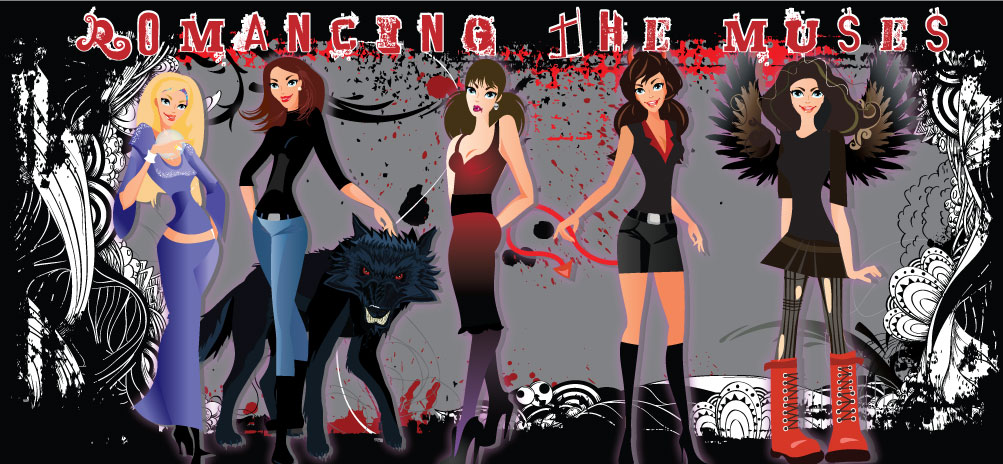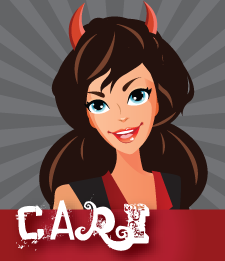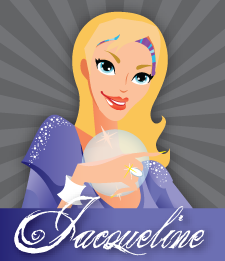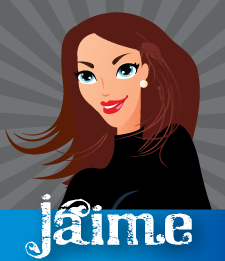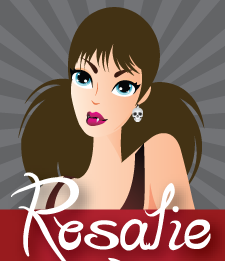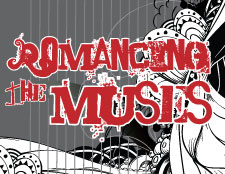This is more of an admonition than a post. It's late, I'm tired, I didn't plan sufficiently to get my Muses post written...hmm, what else is new? This story has a predictable ending, me thinks.
But I do have a bit of advice to share. It's simple really and relates somewhat to Rosalie's post this week. While the muse is cranking, keep it going. That story you LOVE, that keeps you up at night and makes you eager to get to the keyboard each day...well, it's not as sweet as it seems. Turn your back on it for a couple days or a couple weeks and something curious may happen. When you return to your magnificent manuscript, you may find it's changed. Morphed even into something not quite recognizable.
DO NOT WALK AWAY!
When you're in the thick of writing a piece, ride that gravy train all the way home. Don't try to convince yourself the words and the flow of the story will still be there next month or beyond when you go to try to pick it up again. Stories have a limited shelf life. Sure, you can work to regain the thread again and you may even succeed. But if I've learned anything, it's to write a story until it's finished. If you must work on more than one thing - as I do, though I'm trying to force myself to work on no more than 2 books at a time - make sure you keep working on the story every week. Do a little bit as often as possible, just as Rosalie suggested. It's so disheartening to return to the book you once adored only to realize you're not in the same place to write it anymore.
Just consider this a Friday PWA (public writing announcement) from your friendly Muses...
Thursday, July 28, 2011
Monday, July 25, 2011
Feeling hot hot hot
I can’t really speak for my fellow authors, but I believe the following to be generally true: you might love writing, but that doesn’t mean you love writing all the time.
Shocking, I know.
Some people seemingly can write all the time, and I envy them. Some people have the time and energy to sit down and fire off manuscripts left and right. On Facebook, I will occasionally see an author celebrating three releases within two weeks. How in the world do they manage to pull that off?
I’ve had it pointed out to me that many of the most prolific authors are those who routinely produce novellas. This doesn’t make it any less impressive. The fact anyone out there has the time, talent, and drive to produce that amount of material is damn near mind-boggling.
Personally, I can’t keep it up forever. I might be on a hot streak for a few days, even weeks. Then I take one day off and suddenly a month’s flown by and I’ve relied on the “I’ll write tomorrow” philosophy. Tomorrow comes and I’m more interested in reading or surfing the net than doing work. Ultimately, I pull myself out of it, but once you break a streak, it’s annoyingly difficult to get back on track. Like exercising. You go strong for a few days and then decide to skip your 30 minute workout, and suddenly your NordicTrack hasn’t been used in months.
Getting any writing done is an accomplishment. Be it 100 words or 10,000 words. Of course, you’re allowed to take breaks or decide you don’t want to worry about it one night. My suggestion, though, is if you’re on a hot streak, try to get a small amount written every day just to keep the juices flowing. Don’t take such bouts of inspiration for granted, ‘cause all good things come to an end. That’s not to say it won’t come around again, because it will. There’s just no telling how long it’ll take.
Shocking, I know.
Some people seemingly can write all the time, and I envy them. Some people have the time and energy to sit down and fire off manuscripts left and right. On Facebook, I will occasionally see an author celebrating three releases within two weeks. How in the world do they manage to pull that off?
I’ve had it pointed out to me that many of the most prolific authors are those who routinely produce novellas. This doesn’t make it any less impressive. The fact anyone out there has the time, talent, and drive to produce that amount of material is damn near mind-boggling.
Personally, I can’t keep it up forever. I might be on a hot streak for a few days, even weeks. Then I take one day off and suddenly a month’s flown by and I’ve relied on the “I’ll write tomorrow” philosophy. Tomorrow comes and I’m more interested in reading or surfing the net than doing work. Ultimately, I pull myself out of it, but once you break a streak, it’s annoyingly difficult to get back on track. Like exercising. You go strong for a few days and then decide to skip your 30 minute workout, and suddenly your NordicTrack hasn’t been used in months.
Getting any writing done is an accomplishment. Be it 100 words or 10,000 words. Of course, you’re allowed to take breaks or decide you don’t want to worry about it one night. My suggestion, though, is if you’re on a hot streak, try to get a small amount written every day just to keep the juices flowing. Don’t take such bouts of inspiration for granted, ‘cause all good things come to an end. That’s not to say it won’t come around again, because it will. There’s just no telling how long it’ll take.
Monday, July 18, 2011
I'm sick of you and your stupid face
I began working on a book just after receiving my very first contract in 2009. It was a paranormal romance, one with characters I enjoyed, a plot I felt was fun and innovative, even if it was a bit darker than what I typically wrote. I choked out the first 12k or so before hitting a brick wall. I didn’t understand my main character, her motivations, and every word I wrote felt forced and, well, wrong. So I shelved the project and sank into a stagnant writer’s block that lasted about 9 months. Oh, I’d get a few words written here or there, but overall, I couldn’t get a move on it or anything else that fell on my lap.
In July of 2010, I began a new day job—one with about 150% less daily stress than my former. Gradually, I dragged myself out of the funk, picked up this book, blew off the dust, and decided to start writing again. In October, I became distracted with another project that took about 6 weeks to write and decided to make itself a series rather than a standalone. In December, I decided to either make it or break it with that first book, gutted the beginning, rewrote scenes and changed my characters. Last night, I finally typed the epilogue.
Accomplished? Ecstatic? Excited? Yes. I’m all of these things.
Above else… I am so freaking sick of this book, it’s not funny.
Now, don’t get me wrong: I’m very proud of the book, proud of the story, and will happily work on it during the editing process and whatever else comes next. But in terms of writing it, I’ve carried these characters for two long years. Even the days when I didn’t write them, they were still with me. Imagine spending 730 consecutive days with the same people who are doing the same thing—or worse, slowly doing something they should have already accomplished. I’m just tired of carrying them with me day after day. Sure, I still have a ways to go, but the first part in a larger, longer process is behind me, and I got to say, aside from accomplishment, I feel relieved.
This is a natural reaction. I’ve felt it before regarding stories I love, and I’ll feel this way again. Getting tired of your plot or your characters is not a warning it’s a bad story. It’s just symptomatic of waking up day after day with more of the same. You just have to decide whether or not it’s worth it to you to keep pressing on with a certain project, or taking a break and hoping some time away will give you renewed energy. Although if you’re anything like me, not writing doesn’t mean not working; I worked on this book every day, whether or not I wrote a word. Now, even though it’s hardly the end, I can at least take comfort in the fact that the characters are where they need to be.
So don’t fret if you can’t stand the sight of your main character’s name. It might just mean you two need some time apart to find the love for each other again.
In July of 2010, I began a new day job—one with about 150% less daily stress than my former. Gradually, I dragged myself out of the funk, picked up this book, blew off the dust, and decided to start writing again. In October, I became distracted with another project that took about 6 weeks to write and decided to make itself a series rather than a standalone. In December, I decided to either make it or break it with that first book, gutted the beginning, rewrote scenes and changed my characters. Last night, I finally typed the epilogue.
Accomplished? Ecstatic? Excited? Yes. I’m all of these things.
Above else… I am so freaking sick of this book, it’s not funny.
Now, don’t get me wrong: I’m very proud of the book, proud of the story, and will happily work on it during the editing process and whatever else comes next. But in terms of writing it, I’ve carried these characters for two long years. Even the days when I didn’t write them, they were still with me. Imagine spending 730 consecutive days with the same people who are doing the same thing—or worse, slowly doing something they should have already accomplished. I’m just tired of carrying them with me day after day. Sure, I still have a ways to go, but the first part in a larger, longer process is behind me, and I got to say, aside from accomplishment, I feel relieved.
This is a natural reaction. I’ve felt it before regarding stories I love, and I’ll feel this way again. Getting tired of your plot or your characters is not a warning it’s a bad story. It’s just symptomatic of waking up day after day with more of the same. You just have to decide whether or not it’s worth it to you to keep pressing on with a certain project, or taking a break and hoping some time away will give you renewed energy. Although if you’re anything like me, not writing doesn’t mean not working; I worked on this book every day, whether or not I wrote a word. Now, even though it’s hardly the end, I can at least take comfort in the fact that the characters are where they need to be.
So don’t fret if you can’t stand the sight of your main character’s name. It might just mean you two need some time apart to find the love for each other again.
Thursday, July 14, 2011
How far is too far?
Full disclosure: this post is cross-posted at Romancing The Muses and Three Wicked Writers Plus Two for two reasons…1) I'm really curious about responses to this topic and want to get the most opinions possible…and 2) my bloggy brain has gone radio silent and honestly couldn't squeeze out two topics this week! I'll be back to my usual form next week, I hope.
Now to my post…
Me obstinate? Noooo way. Never. I mean, I'm not so stubborn that I'll do something that would increase my chances of failure just to say I did. That would be silly.
That would be me.
I like writing about characters with issues. Not too surprising, really, because I think most of us do. Where's the fun in crafting perfect characters? (Though I used to do just that in high school, when I'd had enough of my own imperfections, thank you very much, so at least my heroine could have a three inch waist and a gorgeous, flawless man who hung on her every word.) But along with creating imperfect characters, sometimes your characters aren't just quirky-cute-off. Sometimes they're wholesale screwed up…or make very screwed up decisions. Which is all well and good, if by the time they get on the page they're mostly sorted out…or you're writing a genre that's not romance. Meaning, if the hero/heroine sleeps with someone who's not their BIG LOVE people won't want to kill you.
I've been told my heroes sometimes don't seem heroic right away. I tend to like hard-edged guys, and while they definitely grow and change and soften a bit, the first time they show up they're likely to be…well, not necessarily nice. I've tried to smooth down some of their edges. I really have. But I butt up against that age old adage that if your hero isn't heroic, no one will want to spend time with him to wait for him to grow and change. But…waaah! I like my guys rougher. I like their conflicts to be closer to life. Guys sometimes screw up (as do women, but I know many women who read m/f or m/f/m romance pay more attention to the guys) and sometimes those screwups are HUGE. The point is whether they learn and get better afterward…at least to me.
In my latest release, the hero is faced with a decision I've been told has given some angst to readers. Understandably, because if I were reading it, I'd feel the same. When you bond with a heroine - when you become her in a sense - the hero making a choice that potentially will harm her hurts. So how far do you go in staying true to the character? Do you go all the way, balls to the wall (excuse the expression, but it fits in this case) or do you pull your punches, knowing you may piss some people off? It's a tough choice and I'm sure the answer will be different for every writer.
A couple of my heroines have also been called on the carpet for not being nice. I like trying to redeem characters, and I also need to keep myself entertained and engaged by writing characters with the full complement of emotions and flaws. Some deliberate too much. Some angst. Some are recovering narcissists. I can't keep writing the same character slightly tweaked, even if I know she may be more well-received. I'd get bored that way, as would my readers. And some people have enjoyed those more complicated heroines, so I guess it's truly a matter of what you prefer. As a reader myself, I love characters with flaws as big as their strengths...and occasionally even bigger. Watching them wrestle with their dark side and ultimately win is hugely satisfying to me.
I'm curious…as a reader are there things you just won't accept? In a romance, for example, if the hero/heroine sleeps with someone else after he's started to fall for the hero/heroine is that a dealbreaker or does it depend on circumstances? And writers…how far will you/won't you go in the pursuit of telling your story the way you think it needs to be told?
I'm looking forward to hearing your answers! And I apologize for the cross-post…I'm planning on being more bright-eyed and blog-inspired next week!
Wednesday, July 13, 2011
Thought Provoking Q & A
Since my children are being absolutely wild today (and have been all week), I've decided to share a link to a Q & A session with author Maya Banks over at Dear Author. She talks very frankly about the things authors really want to know: writing, promotion, and money. The money issue really got my attention, but I was also interested in her e-published numbers versus her New York sales. Very, very important stuff.
She clearly indicates there is money to be made in e-publishing, even if she's isn't one-hundred percent certain of the formula. Regardless, her business ventures have made her more money this year than some people will see in a lifetime. I confess I wasn't expecting to read such high figures, however, it does prove that if you keep writing, gain an audience, and produce quality books each year readers will follow.
If you get a chance, I highly recommend you give the interview a read.
As always, the eye candy of the week.
She clearly indicates there is money to be made in e-publishing, even if she's isn't one-hundred percent certain of the formula. Regardless, her business ventures have made her more money this year than some people will see in a lifetime. I confess I wasn't expecting to read such high figures, however, it does prove that if you keep writing, gain an audience, and produce quality books each year readers will follow.
If you get a chance, I highly recommend you give the interview a read.
As always, the eye candy of the week.
Labels:
e-books,
regarding: publication,
regarding: writing
Tuesday, July 12, 2011
Hats off to all of those behind the pages!
Recently a friend of mine released a book that she
"self published". She has many other books that are
out there by various different publishers as well, but
when the contract ended for this one she decided to
give it an overhaul and bring out it again - new and
improved if you like.
I went through the labor pains with her to bring this
baby back into print and let me tell you I now have
a new found respect for all those people responsible
for doing the laps to get all of those books out there.
As the author everyone knows it's a long process to
write the story and then survive through the edits of it.
I applaud the editors for their patience with us when
they have to smack our hands repeatedly to prevent us
from making that same grammar blunders three pages
after the last one.
What I didn't realize was how tedious and trying it is to
take it beyond the editing process. Formatting for a
print edition is a painful process - after all you don't want the
binding to eat away the edges of your story. You want it
to look balanced and easy to read, which also means the
style of font becomes important too. Simple seems to be
the best answer to that.
In the ever growing world of POD (print on demand) there
are templates available to make the process of proper layout
as easy as possible and you would think a quick copy-paste of the
polished manuscript would do the trick ... but no, it's not!
Hours and I mean HOURS of shifting this and adjusting that is
involved to make it work are involved. Seriously it looks silly to
turn the page and have one word and a period printed on it.
We all gush over our cover artists for their creative brilliance -
not knowing at the time that their cover/spine/back images have
to fit perfectly for the print version of a book. Without their work
 half of your spine would be on the front cover and your book would
half of your spine would be on the front cover and your book would
look like someone printed it in the garage on some antique printing
press.
I have a new found respect for all of those at all types of publishers
for the work they do to get our words out there!! Without you
we authors would be out there in the world peddling out stapled
together manuscripts complete with typo's, uneven paragraphs,
ink smudges and lopsided covers!
My hat is off to all of those people behind the pages of each book
out there. Simply put - you guys rock!
"self published". She has many other books that are
out there by various different publishers as well, but
when the contract ended for this one she decided to
give it an overhaul and bring out it again - new and
improved if you like.
I went through the labor pains with her to bring this
baby back into print and let me tell you I now have
a new found respect for all those people responsible
for doing the laps to get all of those books out there.
As the author everyone knows it's a long process to
write the story and then survive through the edits of it.
I applaud the editors for their patience with us when
they have to smack our hands repeatedly to prevent us
from making that same grammar blunders three pages
after the last one.
What I didn't realize was how tedious and trying it is to
take it beyond the editing process. Formatting for a
print edition is a painful process - after all you don't want the
binding to eat away the edges of your story. You want it
to look balanced and easy to read, which also means the
style of font becomes important too. Simple seems to be
the best answer to that.
In the ever growing world of POD (print on demand) there
are templates available to make the process of proper layout
as easy as possible and you would think a quick copy-paste of the
polished manuscript would do the trick ... but no, it's not!
Hours and I mean HOURS of shifting this and adjusting that is
involved to make it work are involved. Seriously it looks silly to
turn the page and have one word and a period printed on it.
We all gush over our cover artists for their creative brilliance -
not knowing at the time that their cover/spine/back images have
to fit perfectly for the print version of a book. Without their work
 half of your spine would be on the front cover and your book would
half of your spine would be on the front cover and your book wouldlook like someone printed it in the garage on some antique printing
press.
I have a new found respect for all of those at all types of publishers
for the work they do to get our words out there!! Without you
we authors would be out there in the world peddling out stapled
together manuscripts complete with typo's, uneven paragraphs,
ink smudges and lopsided covers!
My hat is off to all of those people behind the pages of each book
out there. Simply put - you guys rock!
Monday, July 11, 2011
A Day In The Life
As a professional writer, your day starts around 10 A.M. Well, you wake up, but you feel a little drowsy so you go back to sleep. After a good forty-five minutes wrestling with exhaustion, you convince yourself to get up by promising your growling tummy a nice brunch. You order something in – pizza, Chinese, whatever – and answer the door in your bathrobe, because there is absolutely no sense in dressing. You turn on the television and catch up on your stories and celebrity gossip. Around 2:00, you decide you’re ready for a nap. A little after 4:00, you get a call from your friend who wants to go catch the sale at Macy’s. After picking up dinner around 7:00, you decide it’s time to start writing. Well, maybe after a long soak in the tub.
Sounds nice, right?
In reality, most writers have fulltime jobs, and if not they certainly have obligations, be those obligations children, family, errands, cleaning, laundry, dishes, picking people up, dropping people off, cooking, part-time jobs, editing, crit-partner reading, and so on and so on and so on.
Personally, I start my day at 6:00 A.M. I get up, get ready, make breakfast, and am out the door within an hour. I spend the hours between 8-5 answering phones, entering data, and addressing scrap metal customers. I do get a reprieve between 12-1 for lunch and, if I’m lucky, maybe 20 minutes to do what I want (writing, reading, editing, or even just surfing the web) between answering phones (that don’t stop ringing, no matter what time it is). This is also only applicable on days when I don’t need that hour long lunch to run errands (taking over rent or refilling medication) and have already brought my lunch (can heat it up).
I get home around 5:30. Aaron and I have dinner and play an episode of whatever show we’re currently watching on Netflix. Around 6:30-45, I head upstairs to shower. At 7:00-15, I get to sit down and write. I have until 8:30-45 to get as much writing done as possible. This isn’t a lot of time.
This is also limited to other interruptions. Say my mother calls. There goes 20 minutes. And that’s not accounting for time spent editing. As a professional editor, no matter how much I may want to write, my first obligation is to the author who expects me to have their manuscript marked up within a reasonable amount of time. Granted, this doesn’t mean I put my own writing aside. I set goals for myself, something to tune of “If I get X amount of this MS edited tonight, I will allow myself to write.”
All things considered, my schedule is forgiving. I don’t have to take my work home with me, I don’t have children, and my employers are practically my adopted parents who understand my first passion is writing. Other authors, even those who seem frighteningly prolific, have to deal with a thousand other things before they can think about writing.
This industry is one you almost have to be in for the love of it, and likewise one you can’t just up and do whenever you feel like it. Exhaustion and writer’s block can compile upon those precious few minutes you have to pound away at the keyboard. Not to mention if you have a manuscript back from an editor that you’re in the process of prepping for release. Or if you’re doing promos, answering emails, sent author interviews, et cetera. Time management is essential when it comes to writing. And yes, there are exceptions that prove the rule…but exceptions can’t be mistaken for the norm.
The best way to do this? Set small goals for yourself. I feel if I can get 500 words written per every 30-45 min block I have to write, I’m on the right track. And should I be high on inspiration, the words coming faster than I can write them, I boost my word count goal to 750-1000. I don’t demand the impossible from myself. 500 words might seem like a lot to some and laughably pitiful to others, but it’s what works for me.
In essence: cut yourself some slack if you don’t have 50k written in two weeks. Make sure your goals are feasible. And if you are one of those lucky few who possess endless hours to get as much writing done as you like without worrying about paychecks and other responsibilities…I sincerely hope you know just how fortunate you are.
Sounds nice, right?
In reality, most writers have fulltime jobs, and if not they certainly have obligations, be those obligations children, family, errands, cleaning, laundry, dishes, picking people up, dropping people off, cooking, part-time jobs, editing, crit-partner reading, and so on and so on and so on.
Personally, I start my day at 6:00 A.M. I get up, get ready, make breakfast, and am out the door within an hour. I spend the hours between 8-5 answering phones, entering data, and addressing scrap metal customers. I do get a reprieve between 12-1 for lunch and, if I’m lucky, maybe 20 minutes to do what I want (writing, reading, editing, or even just surfing the web) between answering phones (that don’t stop ringing, no matter what time it is). This is also only applicable on days when I don’t need that hour long lunch to run errands (taking over rent or refilling medication) and have already brought my lunch (can heat it up).
I get home around 5:30. Aaron and I have dinner and play an episode of whatever show we’re currently watching on Netflix. Around 6:30-45, I head upstairs to shower. At 7:00-15, I get to sit down and write. I have until 8:30-45 to get as much writing done as possible. This isn’t a lot of time.
This is also limited to other interruptions. Say my mother calls. There goes 20 minutes. And that’s not accounting for time spent editing. As a professional editor, no matter how much I may want to write, my first obligation is to the author who expects me to have their manuscript marked up within a reasonable amount of time. Granted, this doesn’t mean I put my own writing aside. I set goals for myself, something to tune of “If I get X amount of this MS edited tonight, I will allow myself to write.”
All things considered, my schedule is forgiving. I don’t have to take my work home with me, I don’t have children, and my employers are practically my adopted parents who understand my first passion is writing. Other authors, even those who seem frighteningly prolific, have to deal with a thousand other things before they can think about writing.
This industry is one you almost have to be in for the love of it, and likewise one you can’t just up and do whenever you feel like it. Exhaustion and writer’s block can compile upon those precious few minutes you have to pound away at the keyboard. Not to mention if you have a manuscript back from an editor that you’re in the process of prepping for release. Or if you’re doing promos, answering emails, sent author interviews, et cetera. Time management is essential when it comes to writing. And yes, there are exceptions that prove the rule…but exceptions can’t be mistaken for the norm.
The best way to do this? Set small goals for yourself. I feel if I can get 500 words written per every 30-45 min block I have to write, I’m on the right track. And should I be high on inspiration, the words coming faster than I can write them, I boost my word count goal to 750-1000. I don’t demand the impossible from myself. 500 words might seem like a lot to some and laughably pitiful to others, but it’s what works for me.
In essence: cut yourself some slack if you don’t have 50k written in two weeks. Make sure your goals are feasible. And if you are one of those lucky few who possess endless hours to get as much writing done as you like without worrying about paychecks and other responsibilities…I sincerely hope you know just how fortunate you are.
Monday, July 4, 2011
Why yes, I am phoning it in today.

I don't know about my fellow Muses, but I very much doubt I'll get any writing done today. And while writing is pretty much my favorite thing to do, it always falls below family. And in my neck of the woods, the 4th is reserved for family, barbecues, and leaving the Earth with several more dents than it had the day before.
To those who celebrate the 4th: be safe, have fun, and blow shit up. Tomorrow, real life resumes.
Unless you're the Mythbusters.

Subscribe to:
Posts (Atom)
